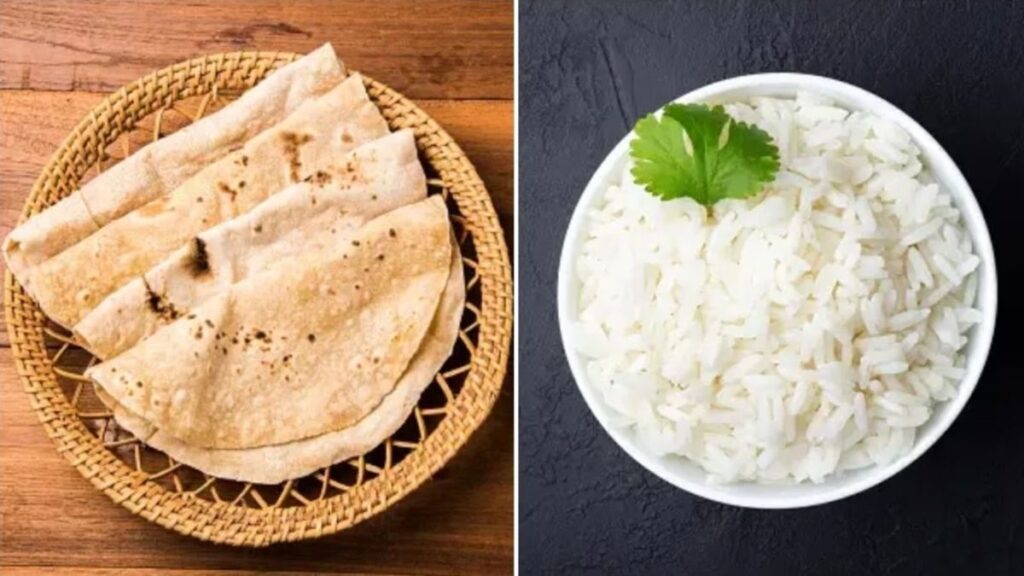Roti vs Rice at Night: Which is Better for Digestion and Sleep?

Roti and rice are the most common staples on Indian dinner plates. Both provide essential carbohydrates, energy, and nutrients, but the way they affect digestion and sleep is quite different. Many people often wonder which is lighter on the stomach at night and healthier for overall digestive comfort.
Why dinner choices matter
Dinner is the last meal of the day, and what you eat directly impacts how well your body digests food and how peacefully you sleep. Heavy or slow-to-digest meals can cause acidity, bloating, or restlessness, while lighter meals may help you sleep better and wake up refreshed.
How roti affects digestion at night
Roti, made from whole wheat or multigrain flour, is high in dietary fiber. This slows down digestion and provides steady energy for longer hours. It also helps stabilise blood sugar levels, which is beneficial for those who stay active in the evenings.
However, the same fiber that makes roti filling can also make it feel heavy, especially for people with sensitive digestion. Eating multiple rotis right before bedtime may sometimes lead to bloating or discomfort.
Benefits of roti at night
- Keeps you full for longer due to high fiber
- Helps maintain stable blood sugar levels
- Good for those with evening physical activity
Points to consider
- May feel heavy for people with slow digestion
- Can cause discomfort if eaten in excess before sleep
How rice impacts digestion at night
Rice, especially white rice, is lower in fiber and digests quickly. This makes it easier on the stomach at night and less likely to cause bloating or acidity. Many people also find rice comforting and light, making it a popular dinner choice.
Interestingly, rice may also help with sleep because its fast-digesting carbs can increase serotonin production, which promotes relaxation. But since rice digests quickly, you may feel hungry again sooner if not paired with dal, vegetables, or protein.
Benefits of rice at night
- Light and easy to digest
- Can promote better sleep
- Suitable for early dinners and sedentary evenings
Points to consider
- Can leave you hungry sooner than roti
- Overeating rice with rich curries may lead to weight gain
Roti vs Rice: Which is lighter?
- Roti: High fiber, slow digestion, longer satiety, may feel heavy.
- Rice: Low fiber, fast digestion, light on the stomach, but may leave you hungry faster.
Tips for a balanced dinner
- If you want light digestion and better sleep, rice is usually a better choice.
- If you need steady energy for longer hours, roti works well.
- Keep portions moderate, and pair with dal, vegetables, or lean protein.
- Avoid oily or heavy side dishes at night to prevent bloating.
In the end, the choice between roti and rice depends on your lifestyle, digestion, and what makes you feel comfortable. Eating mindfully and in moderation ensures both options can fit into a healthy dinner routine.
FAQs
Is rice or roti better for weight loss at night?
Both can be part of a weight-loss diet if eaten in moderation. Roti keeps you full longer, while rice is lighter but should be paired with protein and veggies.
Can eating rice at night cause weight gain?
Not directly. Weight gain happens when you consume excess calories. Eating moderate portions of rice with healthy sides is safe.
Is it bad to eat roti at night?
No, roti is healthy. But for people with acidity or sensitive digestion, too much roti at night may feel heavy.
Which is better for diabetics at night: roti or rice?
Roti, being higher in fiber, helps regulate blood sugar levels better than white rice. Diabetics may benefit more from roti, or from choosing brown rice instead.
How much rice or roti is okay for dinner?
Two medium rotis or one small bowl of rice with dal, vegetables, and protein make for a balanced dinner.










